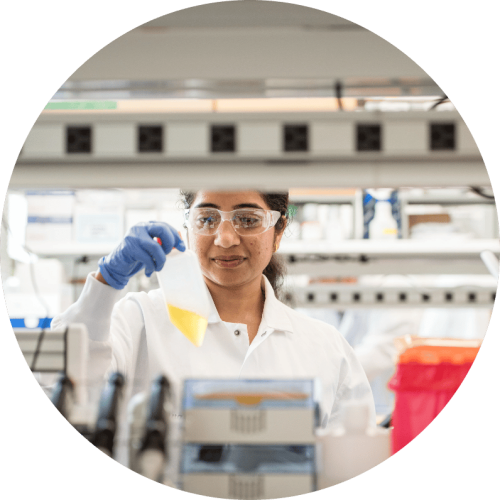Research and Development

Working to Bring New Medicines to Patients to Address Immediate Unmet Needs
Arvinas is dedicated to advancing comprehensive programs in oncology and neurodegeneration, including against targets that have traditionally been deemed “undruggable.”



We Create PROteolysis Targeting Chimeras
Our Research
Arvinas is currently the only targeted protein degradation company with investigational drugs nearing pivotal trials.

Breast Cancer
Vepdegestrant (ARV-471) is an estrogen receptor targeting PROTAC® protein degrader currently being investigated for the potential treatment of patients with locally advanced or metastatic estrogen receptor (ER) positive / human epidermal growth factor receptor 2 (HER2) negative (ER+/HER2-) breast cancer

Neuroscience
We are pioneering the discovery of PROTAC® protein degraders in neurologic diseases, which have historically been difficult to treat
The agents listed above are currently under investigation. Their safety and effectiveness have not yet been established.



If you’re inspired, please take a look at the current list of opportunities to join our team.

